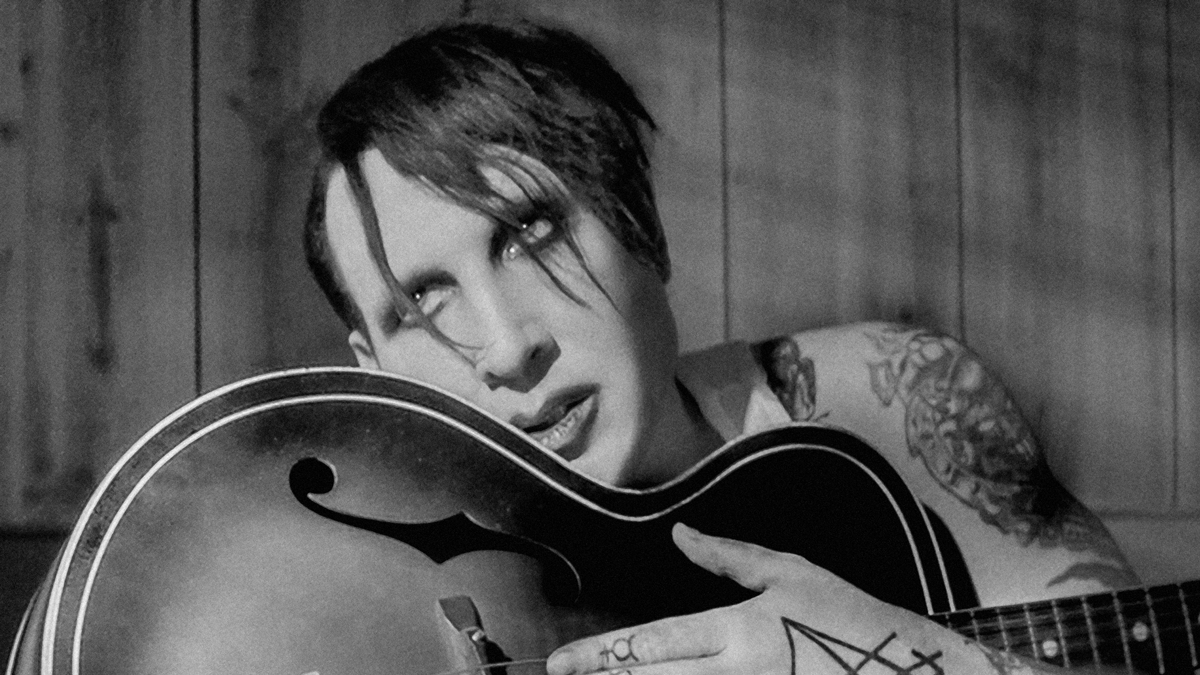We Are Chaos: The Pale Horse Rides again (A short music review)
It's no wonder Manson is excited about his upcoming 2020 album. He's already called it a masterpiece and after hearing his single, 'We Are Chaos', I can believe that we really are looking at one.
On first
listen, I was pleasantly surprised to be greeted with the twanging of an
acoustic guitar rather than the much heavier openings we have come to impute
from Manson. He has delighted us in this way before, however. In 2019 he
released a cover of Johnny Cash's folk ballad, 'God's Gonna Cut You Down', and
before that, several acoustic tracks on The Pale Emperor (2015). He gave us
then, a preview of a tone which reeks of the American Gothic -- a tone he's
returning to now.
There's a
lot peering out at us in 'We Are Chaos'. From behind the cloistered bass drum,
there are guitar slides, tinkling piano notes and a distorted voice message
which swims straight out of 'The Telephone' (1990, The Beaver Meat).
(Marilyn
Manson and a classic 50's hollow-body archtop guitar in God's Gonna Cut You
Down)
Manson
howls, bellows and drawls with the dark magnetism of a southern preacher whose
passionate exclamations remain jangling in our ears long after his sermon has been
delivered. He steers away from the whistle-range (something Manson explored in
Born Villain to a mixed critical response) but punches in those sharp notes
with piano chords instead.
(Manson's
dark preacher calls visions of Harry Powell in Night of The Hunter, 1955, to
the mind)
Manson's
sermon is the song's refrain: "We are sick, fucked up and complicated; we
are chaos; we can't be cured." It sums up a world that is not only in the
grip of an infectious pandemic (Covid-19), but a pandemic of hate too.
He makes
two allusions to literature, the first comes in the line, "far from the
maddening crowd" (a play on the novel, Far From The Madding Crowd by Thomas
Hardy) and the second, "a man of all seasons." A Man For All Seasons
is a play written by Robert Bolt. It is based on Sir Thomas More, Henry VIII's
Lord High Chancellor and struggles with the themes of conscience, loyalty, and
identity. In the song's choral bridge, Manson asks "Am I... the man
in the moon or the man of all seasons?"
 (The Man
in The Moon is, in some Christian interpretations, meant to be Cain, the son of
Adam and the first murderer.)
(The Man
in The Moon is, in some Christian interpretations, meant to be Cain, the son of
Adam and the first murderer.)Chillingly, the line directly
after this (which also precludes the outro/chorus) reads, "Will I be in at
the kill//With you?" It is reminiscent of a line from the very same play
in which More is being persuaded to sign an act which he finds unconscionable. He
says, "and when we stand before God, and you are sent to Paradise for
doing according to your conscience, and I am damned for not doing according to
mine, will you come with me -- for fellowship?"
"What would you do? Cut a great road through the law to get after the Devil? ... And when the last law was down, and the Devil turned round on you – where would you hide, Roper, the laws all being flat? This country is planted thick with laws from coast to coast, Man's laws, not God's, and if you cut them down – and you're just the man to do it – do you really think you could stand upright in the winds that would blow then?" -- A Man For All Seasons, Robert Bolt
When the track ends, Manson's
vocals still haunt us. They crouch under the wooden rafters of the dark church
he's built in the dust. What will he do next? And more importantly, what will
we do next?




Comments
Post a Comment